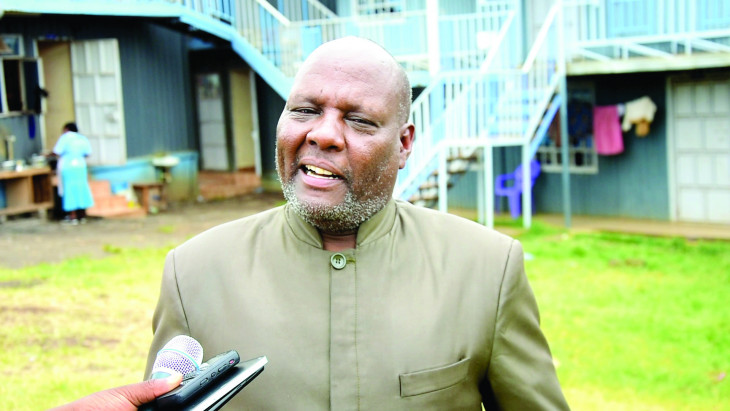Church, State on collision course over new decree
By Mathew.Ndungu, July 18, 2022The government is once again headed for a collision course with some churches following the introduction of a decree aimed at regulating the establishment of new religious organisations as well as ensuring that clerics pay taxes.
Unlike in the present circumstances where the establishment of a new church has been “a free for all affair”, individuals seeking to register churches would henceforth be required to produce theological training certificates.
While the government says the latest regulations are aimed at controlling the emergence of prosperity preachers and fraudsters using the church to gain from their flock, a section of the church leadership view it as ill-advised and aimed at curtailing freedom of worship.
The new guidelines were issued on June 13 and signed by Societies Registrar Maria Nyariki. Religious leaders will now be required to produce copies of their diploma and degree certificates in Theology from recognised institutions before being allowed to open new churches.
Government sources said authorities have been alarmed by the mushrooming of unregulated churches, whose leaders turn out to be fraudsters hiding behind evangelisation.
There has also been concern that the church is becoming heavily commercialised, with self-styled preachers forming their sects and splinter groups purposely to make money and wealth.
“At the moment we are operating in a very dangerous situation where anybody and everybody can wake up any day and decide to start a church. From our data analysis, most of the individuals who form their own churches ostensibly under the direction of Holy Spirit only do so for material gains and confusing their followers,” a highly placed security officer told People Daily.
In the new guidelines, any person willing to start a new church will also be required to produce a copy of his national identification card and Kenya Revenue Authority pin.
Further, applicants will be required to deposit their passport photographs, telephone numbers and Email addresses before their applications are allowed. In what a section of churches have termed as outrageous and a violation of their constitutional rights, the Registrar of Societies also wants preachers to produce their up-to-date Certificates of Good Conduct, Tax Compliance Certificate and a sworn affidavit indicating whether they are registered members or officers of other religious societies and the names of such societies.
Bundled out
Requirement for a KRA pin and Tax Compliance Certificate seeks to track down individuals who avoid paying taxes using their churches or religious societies while the Certificate of Good Conduct, which has a lifespan of six months, aims at weeding out crooks and other criminals hiding behind the church.
“Applicants will also be required to accompany with the documents, a recommendation letter from a registered religious society in good standing signed by any two officers of such society alongside a list of members of the society indicating their full names, national identification and phone numbers,” the guidelines.
Led by Federation of Evangelical and Indigenous Christian Churches of Kenya Secretary General Bishop David Thagana, the church leaders have termed the decree as a scheme to curtail the spread of the gospel.
Thagana yesterday maintained that the requirements such as forcing a transformed individual to produce a certificate of good conduct are a threat to heightened religious activities.
“Some of these measures are harsh and the government needs to relax them. A church is, for instance, not run by an individual. Whether a pastor is learned or otherwise, it should be noted that the church is an institution with schooled deacons and elders who streamline operations,” Thagana, the Glory Outreach Assembly Church Bishop, said.
His sentiments were echoed by Christ Fellowship Church Bishop George Kamau, who decried that the government is gagging the church in total contravention of the Constitution that embraces the freedom of worship.
Bishop Kamau noted that while training of religious learners is part of equipping apostles, prophets, evangelists, pastors and teachers on religious doctrines, the rest of the laws have no basis when it comes to spiritual matters.
But two Catholic priests, Fr John Walibootsa and Fr Emmanuel Jumbe applaud the government’s move, arguing, “spreading the word of God needs theological understanding and interpretation of pertinent application.
“This is the best way of whittling down on the sprouting mediocrity in the already crowded field. Ministers of the Word need good grades in basic education, theology and philosophy,” says Fr Jumbe, a priest in Bungoma Diocese.
Fr Wabootsa, a Comboni missionary based in Nairobi’s Korokocho area warns that theological studies are important for any preacher because “faith without reason can be dangerous.”
“However, it should not be up to the government to set conditions for worship. People need to be free to worship the way they see best without being controlled,” Fr Wabootsa cautions.
